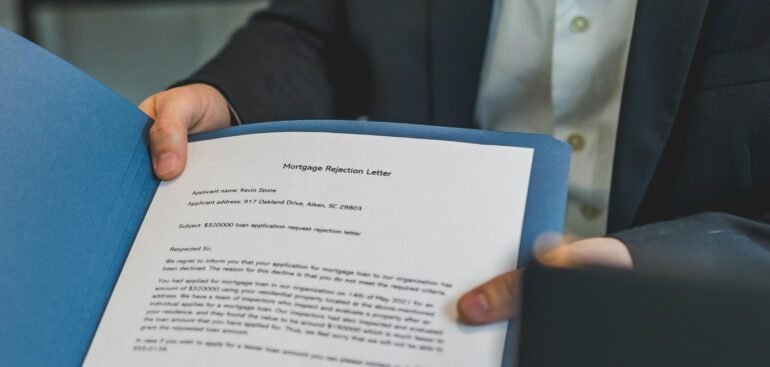Introduction
In a world where financial complexity often meets human error or intentional fraud, the role of a Forensic Accounting Audit has never been more vital. This specialized form of accounting goes beyond traditional practices to investigate and analyze financial records, ensuring accuracy and transparency. Forensic audits are particularly significant in the mortgage sector, where large sums of money, stringent regulations, and intricate documentation create fertile ground for errors or malpractices.
For borrowers, lenders, and legal professionals, forensic audits provide a crucial safety net. They not only uncover financial irregularities but also serve as a preventive measure against fraud and compliance issues. The stakes in mortgage transactions are high, and the consequences of errors can be severe, from financial losses to legal disputes. A forensic accounting audit ensures all parties are protected and helps maintain the integrity of the mortgage process.
This blog will delve into the importance of forensic accounting audits, how they work, their benefits, and their applications in the mortgage industry. Through expert insights, case studies, and actionable advice, we aim to highlight why forensic accounting audits are indispensable for anyone navigating the world of mortgage loans.
What is a Forensic Accounting Audit?
A Forensic Accounting Audit is a detailed examination of financial transactions and records to uncover discrepancies, identify fraud, or verify compliance with regulations. Unlike routine audits, which focus on ensuring financial statements are accurate and compliant, forensic audits are investigative. They are often used to provide evidence in legal cases or resolve disputes.
In the mortgage industry, forensic accounting audits scrutinize various elements, such as:
- Loan documentation for accuracy and completeness.
- Payment histories to detect miscalculations or unauthorized charges.
- Regulatory adherence to ensure compliance with state and federal laws.
- Instances of fraud, such as forged documents, inflated appraisals, or undisclosed fees.
Why Forensic Accounting Audits Matter in Mortgages
The mortgage process involves significant financial and legal implications. Any error or fraudulent activity can lead to:
- Financial losses for borrowers or lenders.
- Legal battles that consume time and resources.
- Damage to reputations and loss of trust.
By identifying and addressing these issues, forensic accounting audits provide a pathway to resolution and prevention.
Common Issues Uncovered by Forensic Accounting Audits
- Mortgage Fraud
Mortgage fraud remains a pressing concern in the industry. Common fraudulent practices include:
- Misrepresentation of borrower income or employment.
- Inflating property values to secure larger loans.
- Concealing liabilities to manipulate loan eligibility.
Forensic accounting audits are uniquely equipped to identify these issues by meticulously analyzing financial records and cross-referencing data.
Expert Comment:
“Mortgage fraud not only affects individual transactions but also undermines the credibility of the financial system. Forensic audits are a cornerstone in combating this issue.” – Dr. Linda Hart, Certified Fraud Examiner (CFE)
- Payment Discrepancies
Errors in payment processing or interest rate calculations can result in borrowers overpaying or being incorrectly charged fees. Forensic audits delve into payment histories to identify and rectify these discrepancies.
- Regulatory Non-Compliance
Lenders and financial institutions must adhere to strict regulatory frameworks. Forensic audits ensure all transactions comply with these requirements, minimizing the risk of penalties or legal actions.
How Forensic Accounting Audits Work
Step 1: Understanding the Scope
The process begins with identifying the specific concerns or objectives of the audit. This could include investigating suspected fraud, resolving a dispute, or ensuring compliance.
Step 2: Gathering Data
Auditors collect all relevant documentation, such as:
- Loan agreements and disclosures.
- Borrower financial statements.
- Payment records and histories.
- Regulatory filings.
Step 3: Detailed Analysis
Using advanced tools and techniques, auditors analyze the data to identify:
- Anomalies or inconsistencies in financial records.
- Evidence of fraudulent activities.
- Areas of non-compliance with regulations.
Step 4: Reporting Findings
A comprehensive report is prepared, detailing the findings and providing recommendations for corrective actions.
Step 5: Legal Support
If necessary, forensic auditors provide expert testimony to support legal proceedings.
Real-Life Applications of Forensic Accounting Audits in Mortgages
Case Study 1: Identifying Fraudulent Loan Applications
A lender suspected irregularities in several loan applications. A forensic audit revealed that borrowers had falsified income statements and employment records. The lender was able to void the fraudulent loans, preventing significant financial losses.
Case Study 2: Resolving a Payment Dispute
A homeowner noticed discrepancies in their monthly payments. A forensic audit uncovered errors in interest rate calculations, saving the borrower over $15,000 in overcharges.
Testimonial:
“The forensic accounting team was thorough and professional. They uncovered errors I would never have found on my own.” – Jane M., Homeowner
Benefits of Forensic Accounting Audits
For Borrowers
- Identifying and resolving overcharges or unauthorized fees.
- Ensuring accurate loan terms and payment calculations.
- Providing peace of mind through verified financial integrity.
Testimonial:
“I felt helpless dealing with my lender’s errors until the forensic audit team stepped in. Their expertise saved me thousands.” – Michael L., Borrower
For Lenders
- Protecting against fraudulent applications.
- Ensuring compliance with legal and regulatory standards.
- Enhancing trust and credibility among borrowers and stakeholders.
For Legal Professionals
- Providing reliable evidence for litigation.
- Offering expert analysis to support legal arguments.
- Strengthening case outcomes with detailed financial insights.
Tools and Techniques in Forensic Auditing
Data Analytics
Advanced data analysis tools are used to detect patterns, anomalies, and inconsistencies in financial records.
Artificial Intelligence (AI)
AI-powered software enhances the accuracy and efficiency of forensic audits by automating repetitive tasks and uncovering hidden issues.
Blockchain Technology
Blockchain provides a secure and transparent method to verify financial transactions, ensuring their authenticity and integrity.
Expert Insight:
“The adoption of AI and blockchain has transformed forensic auditing, enabling us to uncover issues with unprecedented speed and accuracy.” – David Kim, CPA
Challenges in Forensic Accounting Audits
While forensic audits offer immense benefits, they also come with challenges:
- Incomplete or inaccurate documentation can hinder the process.
- Advanced tools and expertise can be costly.
- Resistance from stakeholders to disclose sensitive financial information.
Experienced auditors employ creative strategies and robust methodologies to overcome these hurdles, ensuring reliable results.
Why Choose Mortgage Audits Online?
At Mortgage Audits Online, we specialize in forensic accounting audits for mortgage loans. Our team of experts combines in-depth knowledge with cutting-edge technology to deliver actionable insights and solutions.
Our Services Include:
- Comprehensive analysis of mortgage loans.
- Identification of discrepancies and errors.
- Regulatory compliance audits.
- Expert testimony for legal cases.
Testimonial:
“Mortgage Audits Online provided a detailed audit that resolved my payment dispute efficiently. Their expertise was evident throughout the process.” – Anna S., Borrower
Call to Action
Whether you’re a borrower, lender, or legal professional, a Forensic Accounting Audit can provide the clarity and confidence you need in your mortgage transactions. Don’t wait until issues escalate—take proactive steps to ensure your financial interests are protected.
Contact us today at (877)-399-2995 or visit Mortgage Audits Online to schedule your forensic accounting audit.
Let us help you uncover the truth, resolve disputes, and safeguard your financial future!







